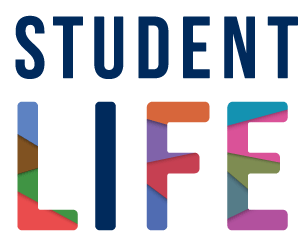This article was originally published by Sami on the Life@UofT blog.
It seems like at every career related event I go to, the number one advice is to have a mentor. A mentor is someone who is more experienced in a certain area that you can go to for advice and guidance. They can help you navigate situations such as student life, big transitions, and finding work.
Mentorship is a mentoring relationship that’s built over time through multiple interactions that seems to involve coffee usually.
For mentees, having a mentor can be great way to learn more about a certain interest and how to achieve a certain goal. While for mentors, having a mentee is a great way to reflect on experiences and share wisdom to help others. And just like any other relationship, it’s all about sharing each other’s time and caring for another person, but in a more professional sense.
Here are some things I keep in mind about mentorship
Be curious
What would I like to know more about? What are my goals and aspirations? What can I learn from others?
Reflect on current relationships
Is there someone I know already that I can go to for advice or maybe I already go to them without realizing it? Then maybe it’s a relationship that I can develop more and reflect on.
Build new connections
If there isn’t someone I know that I can currently go to for advice or learn more about something I’m interested in, then maybe I need to meet someone new. Maybe I know someone who knows someone, or maybe there’s a person in my class or work that I could get to know more. Or maybe it’s just simply talking to someone new.
Come prepared
Before a scheduled meeting with a new person, it doesn’t hurt to come prepared with questions and do some basic research beforehand. For example, if the person has a public profile on LinkedIn or has their own website, then I probably shouldn’t ask where they’ve worked before or how they got to their current position. Instead, I could ask why they decided to work for their current company, and what was the experience like.
Be patient
Since it is like any other relationship, it’ll need time and effort to grow. So it might not be the best idea to just ask someone to mentor me after meeting them for the first time. Even just finding the right fit with someone may take a while, but it’s worth it to find the right guidance and to learn more about myself through the journey.
Mentorship on-campus
Mentor Database
Search for a mentorship program based on your program/faculty/college and apply to be mentee or mentor.
Peer Mentor Training
Develop mentoring skills, get CCR credit and a Mentorship Leadership Certificate through mentoring training on-campus.
Access and Inclusion Peer Programs helps first year students who belong to marginalized, minority or under-represented groups connect with experienced upper-year mentors. Mentor Navigators, can help students who identify as:
- Indigenous
- Black, African or Caribbean
- LGBTTI2QQ+
- First Generation (the first in a family to go to post-secondary)
- a member of an underrepresented religious or spiritual group
- or are in the Transitional Year Programme
First in the Family Program
First Generation students can find a mentor or become one and have fun with First in the Family Fridays.
Student Experience Mentorship Program
The student becomes the teacher. Here, any student can apply to mentor a staff or faculty member.
Workshops
Attend workshops like Talking to New People and Talking to Professionals to practice those networking skills and gain more confidence to build connections. Search and sign up on CLNx.
Republished: 23 February 2020




